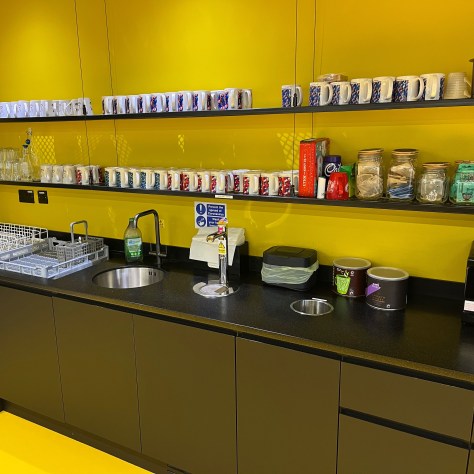The news this week was dominated by the financial crisis that the university sector is facing in the UK.
Wonkhe said in their daily briefing
An increasing number of universities in England face a material risk of closure unless they significantly cut costs or merge. The Office for Students (OfS) 2024 financial sustainability report discusses a heavy reliance on international students due to declining domestic student fee income, and a “worst-case scenario” predicts that four out of five institutions will be in deficit by 2027 without changes.
With over optimistic views by universities about student numbers (domestic and international) the sector is facing a real financial challenge and with no real solutions in sight. There is no easy solution to this.
The OfS report was quite clear about the pressures facing the university sector.
Continuing decline in the real-terms value of income from UK undergraduates combined with inflationary and economic pressures on operating costs and the costs of developing buildings and facilities, as well as increasing employer contributions to some pension schemes.
They added the following key points in their report.
- A recent apparent reduction in UK and international applications after years of strong growth, especially from international students.
- A higher education financial model that has become reliant on fee income from international students, with a particular vulnerability where recruitment is predominantly from a single country.
- The affordability of necessary estate maintenance and development and the significant cost of investment needed to reduce carbon emissions as part of providers’ commitments to achieve net zero.
- Cost of living difficulties for students and staff, which challenge both student recruitment and the support needed by students during their time in higher education.
The report set out that universities may need to think differently to respond to the challenges they face.
Changes to a provider’s operating model can be a healthy response to financial challenge. The sector as a whole has been in a relatively strong financial position for much of the past decade and has expanded its delivery to more UK and non-UK students. The financial challenges it is facing now could be a catalyst to drive positive change and innovation. Actions being taken by providers can result in more efficient operation, and could have benefits for students, including improved value for money.
This very much echoes the work I have been doing at Jisc on optimising operations and looking at collaboration and shared services.
The report also acknowledges that there may be mergers ahead.
We also expect that we might see some changes to the size and shape of the sector, for example, through mergers and acquisitions or increase specialisation.
As part of my work I wrote a vision about mergers and the formation of large university groups, but with the individual partners within that group retaining their local identity.
The first large university groups appeared following mergers forced by the regulator after financial pressures could have caused at least one higher education institution to fail. The new group recognised that though in theory they should have a new name, they also realised that the existing names were brands in their own right. As a result they formed The University Group™ but the individual university names were kept. Staff were employed by The University Group™ but students attended a named university. It was so successful that some smaller institutions asked to join the group but retain their identity. What was important to the group was that management and staff recognised that they were employed by The University Group™ and not the named university in which they worked (though some teaching staff worked across the group), from a student experience perspective the student was a student of the named university. They would be awarded their degree from that named university and would to all intents and purposes be a graduate of that named university.
This is a model we have seen in the Further Education sector, with large college groups and individual campuses having a separate brand and identity.
As well as facing financial challenges, the sector is also facing an unhappy cohort of students who are making more complaints.
Students complaints to the Office of the Independent Adjudicator (OIA) in England and Wales rose to 3,137 in 2023, the ombuds’ annual report reveals. This was a ten per cent increase from 2022, and OIA recommendations led to more than £580,000 paid out in financial compensation, in addition to almost £640,000 in settlements. Some 21 per cent of complaints were adjudged to be justified (two per cent) or partly justified (seven per cent) or were settled in favour of the student.
Wonkhe reflects on a year of complaints received by the Office of the Independent Adjudicator.
I was in the office for a couple of days this week, but reflected I’ve not been out and about for a while. I was expecting to go out and do some visits and workshops in May, but these never materialised. I‘ve also not attended any recent events, I think I might have to do some travelling over the next few weeks.
I attended our regular catch up meeting with the OfS this week in our Bristol office, and we updated each other which what is happening and what this may mean.
Wrote a short thought piece on academic staff using ChatGPT for student feedback.
We know that students are using tools such as ChatGPT to support their assessment work. It looks like some staff are also using the tool to provide feedback.

I have started a leadership development programme at Jisc. I am very much in the position in my career, where it is much less about what do I need to do to advance my career, but more about having achieved my career aspiration, what can I do for Jisc. I have extensive management and leadership experience, running teams of various sizes, complexity and geographically distributed. I have planned, designed, and delivered shared services for consortia and complex organisations. I have managed multi-million pound budgets and projects.
So, I am not attending the programme to learn how to be a leader, but there is something about refreshing and updating your knowledge in this space. Also, it will be good to work with colleagues across the organisation as well.
























